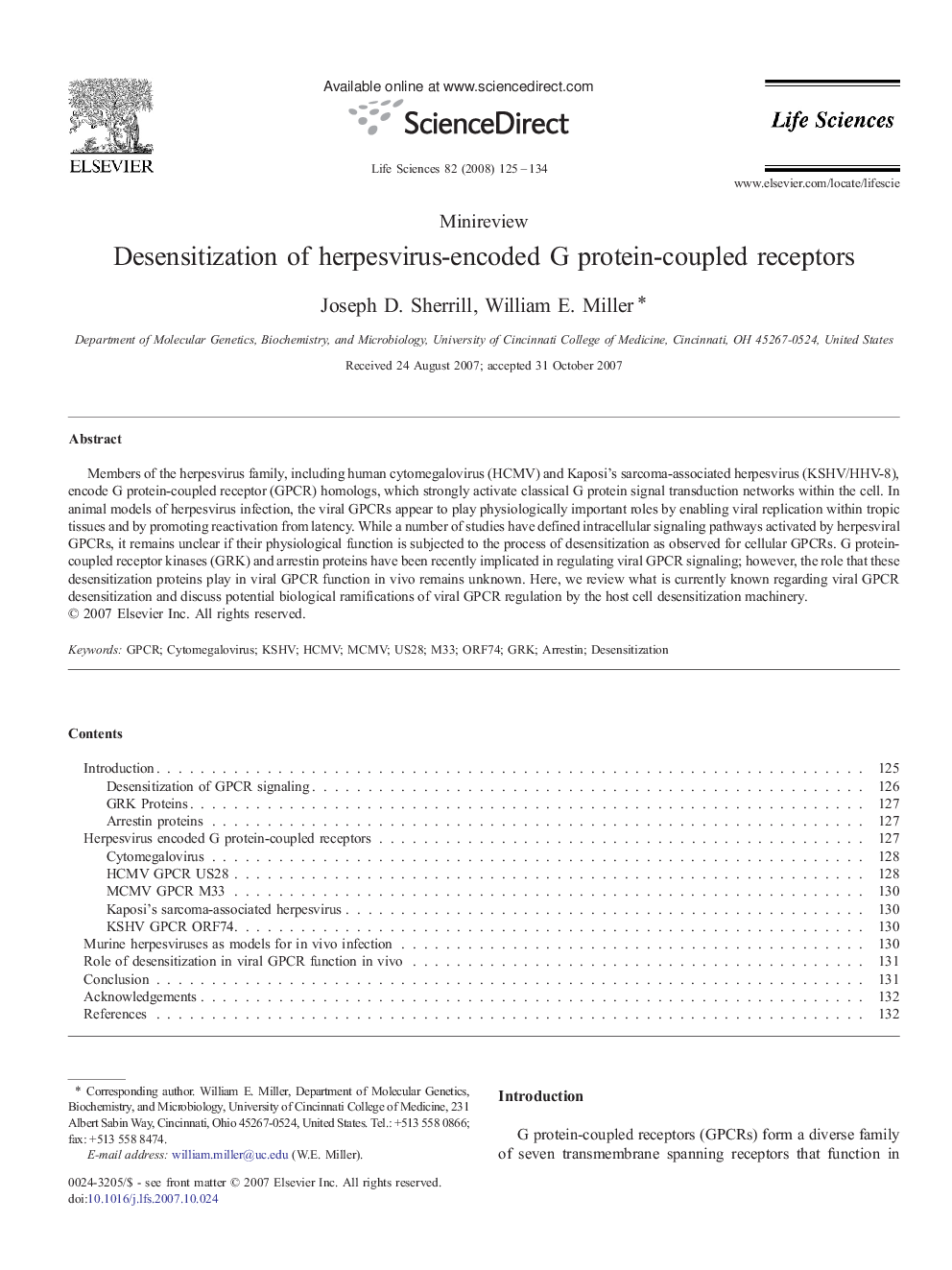| Article ID | Journal | Published Year | Pages | File Type |
|---|---|---|---|---|
| 2552916 | Life Sciences | 2008 | 10 Pages |
Members of the herpesvirus family, including human cytomegalovirus (HCMV) and Kaposi's sarcoma-associated herpesvirus (KSHV/HHV-8), encode G protein-coupled receptor (GPCR) homologs, which strongly activate classical G protein signal transduction networks within the cell. In animal models of herpesvirus infection, the viral GPCRs appear to play physiologically important roles by enabling viral replication within tropic tissues and by promoting reactivation from latency. While a number of studies have defined intracellular signaling pathways activated by herpesviral GPCRs, it remains unclear if their physiological function is subjected to the process of desensitization as observed for cellular GPCRs. G protein-coupled receptor kinases (GRK) and arrestin proteins have been recently implicated in regulating viral GPCR signaling; however, the role that these desensitization proteins play in viral GPCR function in vivo remains unknown. Here, we review what is currently known regarding viral GPCR desensitization and discuss potential biological ramifications of viral GPCR regulation by the host cell desensitization machinery.
